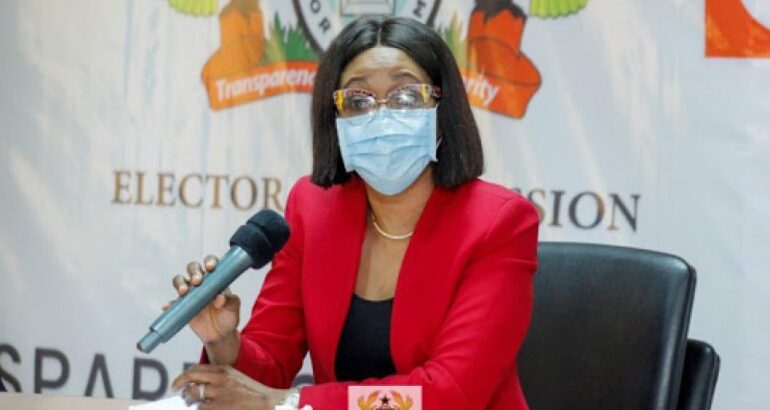Tensions have escalated in the Awutu Senya East District of the Central Region following a violent clash between supporters of the National Democratic Congress (NDC) and the New Patriotic Party (NPP) during the ongoing vote transfer exercise.
The incident on Sunday, June 2, 2024, resulted in at least three individuals sustaining injuries, including Ato Koomson, son of incumbent MP Mavis Hawa Koomson, who was stabbed in the chest.
Eyewitness accounts recount a scene wrought with chaos and discord as both political factions engaged in accusations and recriminations regarding the origins of the violent confrontation. While the NPP points fingers at the NDC for instigating the attack on Ato Koomson during his peace keeping efforts, the NDC vehemently asserts that Koomson himself orchestrated the violence.
In response to the growing unrest, the police have made arrests in connection with the clashes, with specific focus on investigating the circumstances surrounding the outbreak of violence.
Notably, the arrest of NDC constituency organizer Daniel Techie Mensah has sparked allegations of selective arrest from the NDC camp.
Further complicating the situation, the Electoral Commission (EC) issued a directive urging district officers to prohibit political party agents from observing the vote transfer exercise due to the reported violence at some district offices. This move aims to mitigate potential disturbances during the electoral process in light of the recent confrontations.
However, the NDC has adamantly rejected the EC’s directive, terming it as “outrageous”, and has instructed its agents countrywide to disregard the Commission’s instructions.
In a counter statement signed by the party’s general secretary Fifi Fiavi Kwetey, the NDC emphasized the importance of closely monitoring the ongoing voter transfer exercise despite the EC’s directives.
As tensions continue to rise and political accusations fly amidst the volatile climate in the Awutu Senya East district, stakeholders await the outcome of the meeting between the Electoral Commission and the Inter-Party Advisory Committee (IPAC).
The crucial discussions between key stakeholders aim to address the underlying issues fueling the clashes and chart a path forward towards a peaceful and transparent electoral process in the region.


